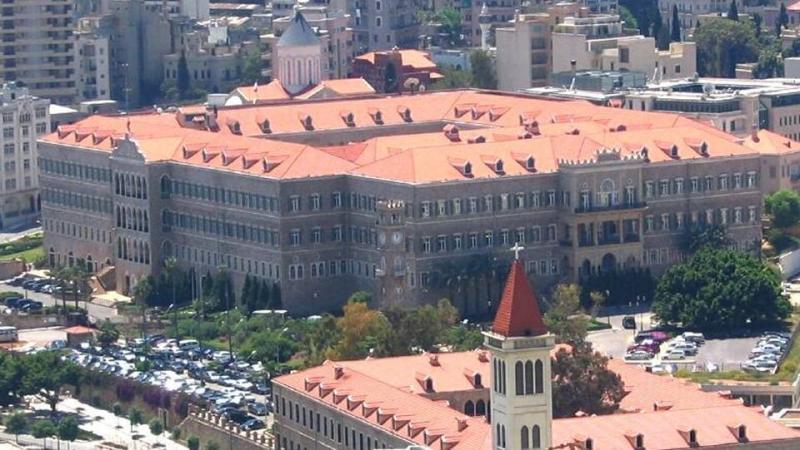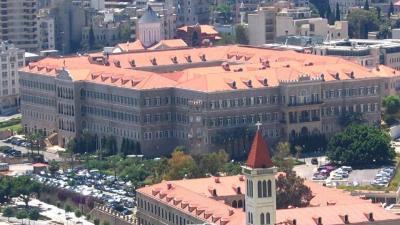An Arab diplomatic source in Beirut indicates that the current political data confirms that the new government will inevitably be headed by President Najib Mikati. The alternative names proposed are seen as attempts by certain parties to elevate their political positions in order to improve their terms in the prospective cabinet. The source tells Asharq Al-Awsat that while Mikati is the most fortunate candidate to lead the last government under President Michel Aoun, he is not willing to return to the prime ministerial position at any cost, as the cost of delay would be severe and would negatively impact a country on the brink of collapse, agreed upon by nations wanting to assist in lifting it from its peak crisis.
The Arab diplomatic source, who maintains contact with most active political forces, confirms that Mikati refuses to be constrained by conditions from any party and has communicated his position to everyone he meets. He believes that succumbing to such conditions would mean becoming an agent for mismanagement tasked with handling the crisis and signing for its extension. The source interprets Mikati's conditions for assuming the prime ministerial position as a firm insistence rather than an evasion of responsibility. He aims to detach the financial recovery and reform plans, along with the rehabilitation of the electricity sector, from political conflicts. Without political safety nets, negotiations with the International Monetary Fund cannot resume, which is essential for transitioning the country from crisis to relief.
The same source views the mandatory parliamentary consultations, expected to be conducted by President Aoun to name the president tasked with forming the government, as not merely filling a vacancy. They must align with facilitating the task of forming a coherent and united government that commits to serious steps towards rescuing the country from its unprecedented crisis. This requires all parties involved to rise above personal calculations, allowing for a meeting midway with the IMF to achieve the desired goal of salvation.
The source questions the utility of certain parties promoting that there is no issue in reassigning Mikati for government formation, but the problem lies in his capability to assemble it. This opens the door to maintaining the caretaker government for the remaining period of President Aoun's term, ending on October 31. He asserts that the cabinet must be tailored to the country's needs, serving as a lifeline to halt its unprecedented collapse.
The source ponders the benefit of insisting on hindering efforts to form a government of specialists, while the cabinet doesn't align with political ambitions. What will they say to the Lebanese and, through them, to the international community, which stipulates that they must first help themselves to ensure receiving foreign aid linked to reaching an irrevocable agreement with the IMF?
In this context, a parliamentary source expresses hope that the President of the Republic will invite deputies to the consultations and "not connect the date and its release to the completion of Deputy Gibran Bassil's review of potential candidates for the prime minister's position, as he is believed to prioritize forming the cabinet over designating someone to lead it."
The parliamentary source warns against repeating previous experiences that have clearly not facilitated the emergence of a government. He aligns with a prominent opposition source accusing Bassil of obstructing government formations and acting as if Aoun were still in the early months of his presidential term. Bassil allegedly believes he has the opportunity to impose conditions for forming a political government that secures cover for his ally, Hezbollah.
The opposition source emphasizes that Bassil no longer holds a political position allowing him to impose conditions on the designated prime minister, especially after Mikati has shut the door on him by refusing to include administrative appointments on the cabinet agenda to ensure continuity of Aoun's political legacy. It asserts that the shadow president, referring to Bassil, lacks leverage to pressure the caretaker prime minister into a political bargain for cabinet formation.
Additionally, the source adds that Bassil's threats to nominate someone else for the prime ministerial role will lead nowhere, as the alternative successor to Mikati lacks the necessary international relationships to reach out to the global community for assistance. They argue that whoever he nominates will witness the return of the country to square one and will soon realize their miscalculation, involving them in conflicts with significant components of the Sunni community that will resist plans undermining balance and the principle of partnership that governs the political equation in the country, as well as jeopardizing the Taif Agreement.
The opposition source warns against yielding to Bassil's conditions for assembling a government in which he retains the final word, especially if a new president cannot be elected before the current president's term expires. It states that while Hezbollah may afford Bassil some time to improve his conditions, it cannot extend it indefinitely due to the political repercussions that would exceed domestic concerns, given the high costs of being accused of exploiting its surplus power for the benefit of its ally inappropriately. Furthermore, Speaker Nabih Berri, while compelled to ally with Bassil in certain electoral districts per Hezbollah's wishes, is not inclined to harmonize with him if he insists on obstructing government formation.
Thus, while leadership of the government may fall to Mikati if political forces comply with his conditions to embark on a rescue mission for the country—even if late—it is required to establish a "fully qualified" government that the international community envisions to prevent plunging the country into a vacuum governed by a caretaker government. This would imply the country entering a prolonged political crisis as the presidential deadline approaches.




